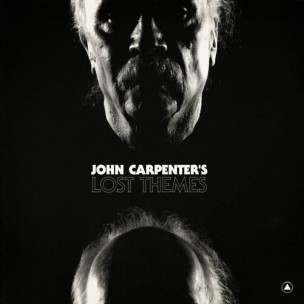As a filmmaker, John Carpenter’s work places a unique emphasis on atmospheric tension. Whether the claustrophobia of “Assault on Precinct 13” or the environmental horror of “The Thing,” Carpenter’s films thrive on keeping the audience on the edge of their seats and throwing them back in shock.
While Carpenter specialized in genre filmmaking at a time when modern action and science fiction (and, to a certain extent, horror) were still in their infancies, his films eschewed typical B-movie pratfalls by blowing formulas up and making them as dark and immersive as possible. And while this is partially due to his refined, often minimalist, mise-en-scène or lingering cinematography, Carpenter’s score work is an essential indicator of his films’ successes.
To call Carpenter’s compositions “revolutionary” would not be entirely accurate. His work certainly was part of a larger electronic movement in cinema music (films directed by Michael Mann, for example, would utilize this stylistic evolution). But it’s ultimately the gravity that separates Carpenter’s work from something like the score to Michael Mann’s “Thief” or “Beverly Hills Cop.” Carpenter’s work on genre films like “Halloween” or “Big Trouble in Little China” lacks the kitschiness of the latter and feels grander and more atmospheric than the former. In many ways, his work, along with contemporaries like David Lynch, paved the way for modern cinematic composition, if the heavily ambient scores for last year’s “Gone Girl” and “A Most Violent Year” are any indication.
And so now, out of the blue, over 40 years into a storied career, John Carpenter has released his first solo album, the rather appropriately titled Lost Themes. Recorded with his son Cody and godson Daniel Davies, the album is a collection of nine improvised instrumental pieces that all illustrate the magic of Carpenter’s musical intricacies in a new format.
Call it a cliché, but these songs are cinematic. And while you’re not going to hear Snake Plissken or Michael Myers on any of these tracks, each impressionist journey twirls and shifts, revealing new melodies and rhythms. “Vortex” provides the kind of pulsating, ethereal rush that would open his films “The Prince of Darkness” or “The Fog.” “Obsidian,” an epic, sprawling, eight-and-a-half-minute composition, builds layers of synths over a roaring guitar, diminuendo-ing into a brief interlude before returning to its thundering themes. The synths on “Mystery” sparkle with a sinister might, and “Wraith” has a frenetic, clicking rhythm that evokes moments of “Escape From New York.” “Purgatory” utilizes an organ line to build a piece that is as much “Dracula” as it is “Big Trouble.”
A possible criticism, perhaps, is that there is a fair amount of repetition over the course of the album’s 48 minutes. But while there are arpeggiating synths and bellowing bass lines abound across this album, each piece is clearly its own entity. Where “Vortex” punches, “Fallen” crackles. Where “Domain” rushes forward, “Wraith” lingers. And where “Purgatory” is an ambient echo, “Night” is a throbbing, synthy juggernaut. So, while there is tonal repetition in the album’s sinister, ghostly visions, Carpenter’s clever sense of pacing keeps the listener on their tone. Like any great film score, it knows when to stab and when to pull back.
Also included in the album are five remixes that, while entertaining, are mostly unnecessary. The standout, a Zola Jesus/Dean Hurley remix of closer “Night,” adds lyrics and a harder beat to Carpenter’s original composition, and Zola Jesus’s echoing mezzo-soprano is a perfect match for the eerie darkness of John Carpenter. The remixes of “Vortex,” “Fallen,” and “Abyss” all tie the pieces back to the synth-pop of the 1980s, and, while an interesting shift, hardly match the originals.
In a recent interview with Pitchfork, Carpenter himself called the pieces on Lost Themes “a soundtrack for the movies that you have in your mind.” Fittingly, these are powerful, otherworldly compositions that rip a hole in the human imagination and send it reeling. Maybe you’ll imagine a thrilling race over a frozen road or the terrifying presence of a monster. Maybe it’s a prison escape or a shootout. As Carpenter said, “everybody walks around with a movie playing in their head.” Lost Themes will finally let you project them.
